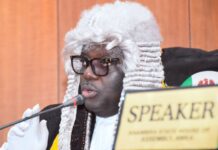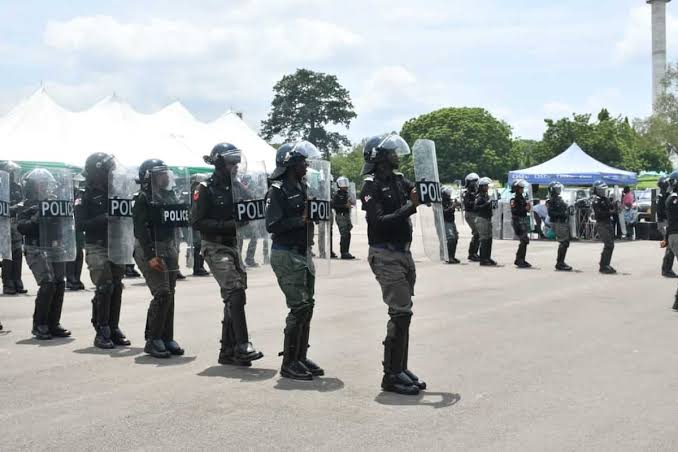A bill for the establishment of state police passed the second reading in the House of Representatives on Tuesday after a lengthy debate.
The bill, sponsored by the Deputy Speaker, Ben Kalu, and 14 others, aims to amend the 1999 Constitution by removing Police from the Exclusive Legislative List and adding it to the concurrent list.
It seeks to transfer “Police” from the “Exclusive Legislative List” to the “Concurrent Legislative List,” effectively empowering states to have state-controlled policing.
It proposes 16 alterations to the constitution and introduces a comprehensive framework to ensure cohesion, accountability, and uniform standards between the federal police and state police.
The bill also seeks to establish State Police Service Commissions as distinct from the Federal Police Service Commission with clearly defined roles and jurisdictions.
Additionally, it seeks to allow the federal government to provide grants and aid to states to support the establishment of a police force for each state.
Leading the debate on the bill on behalf of the co-sponsors, Muktar Shagaya (APC, Kwara), said the state police bill is not only a matter of federalism but that the exigency of time calls for its creation.
“This bill emerges as a necessary response to several calls for a decentralised and community-oriented approach to law enforcement. It seeks to navigate the complex landscape of security challenges by empowering our states with the means to address issues unique to their localities.
“This proposed alteration represents not just a legal adjustment to our grundnorm but a visionary leap towards a safer, more secure, and harmonious Britain,” he said.
Mr Shagaya urged members of the House to support the bill regardless of party affiliations.
“As we deliberate on this historic bill, let us transcend party lines and ideologies and focus unwaveringly on the collective good of our beloved nation. The establishment of State Police is a clarion call for a tailored, community-centric policing system,” he said.
Speaking in support of the bill, Ahmed Jaha (APC, Borno), said the establishment of civilian armed groups helps the government in fighting bandits in the North-east.
He said internal security is not the responsibility of the Nigerian Army, adding that the over-involvement of the army in fighting insecurity points to the failure of the internal security architecture.
Also speaking for the passage of the bill, the Chairman of the House Committee on Defence, Babajimi Benson (APC, Lagos), echoed some of the arguments made by Messrs Shagaya and Jaha on the proposed legislation.
He stated that the bill should set conditions for states willing to set up police.
Also, he said the federal government should have the power to approve the state to set up police, adding that it (the federal government) must retain the power to withdraw such a licence if a state fails to meet those conditions.
In his contribution, Awaji Abiante (PDP, Rivers), said the bill would cure the tragedy of the unitary degree of 1966. He warned that effort must be made to prevent the defeat of the bill.
Aliyu Madaki (NNPP, Kano) said he was part of the group that championed the “killing the bill” in the 8th and 9th Assemblies because of the fear of governors abusing state police.
He added that the level of insecurity has made him change his mind to support the bill.
He urged his colleagues not to make the mistakes they have made in the past.
In his contribution, Sada Soli (APC, Katsina), said about 21 states are caught up in a socio-political quagmire. He listed some of the states including Plateau, Taraba, and Kaduna, asking “How do you set up police in those states?”
“Policing is capital intensive and many of those states are not financially stable to fund police. We know the attitude of state governors in some states,” he said.
Ademorin Kuye (APC, Lagos), in his remarks, countered the argument raised by Mr Soli, noting that the House cannot allow fear to prevent the passage of the bill.
Following a lengthy debate that lasted about one hour, Mr Kalu, who presided over the plenary, put the bill to a voice vote and a majority of the lawmakers voted in support of the bill to be passed for second reading.
He subsequently referred the bill to the Constitution Review Committee for further legislative action.
There have been several attempts in the past to pass the state police bill, however, the fear of it being abused by the governors has always been the reason many lawmakers opposed it.
The bill will go through several legislative hurdles and presidential assent to become law.
President Bola Tinubu on Thursday met with the state governors in Abuja during which they considered “the possibility of setting up state police.”





